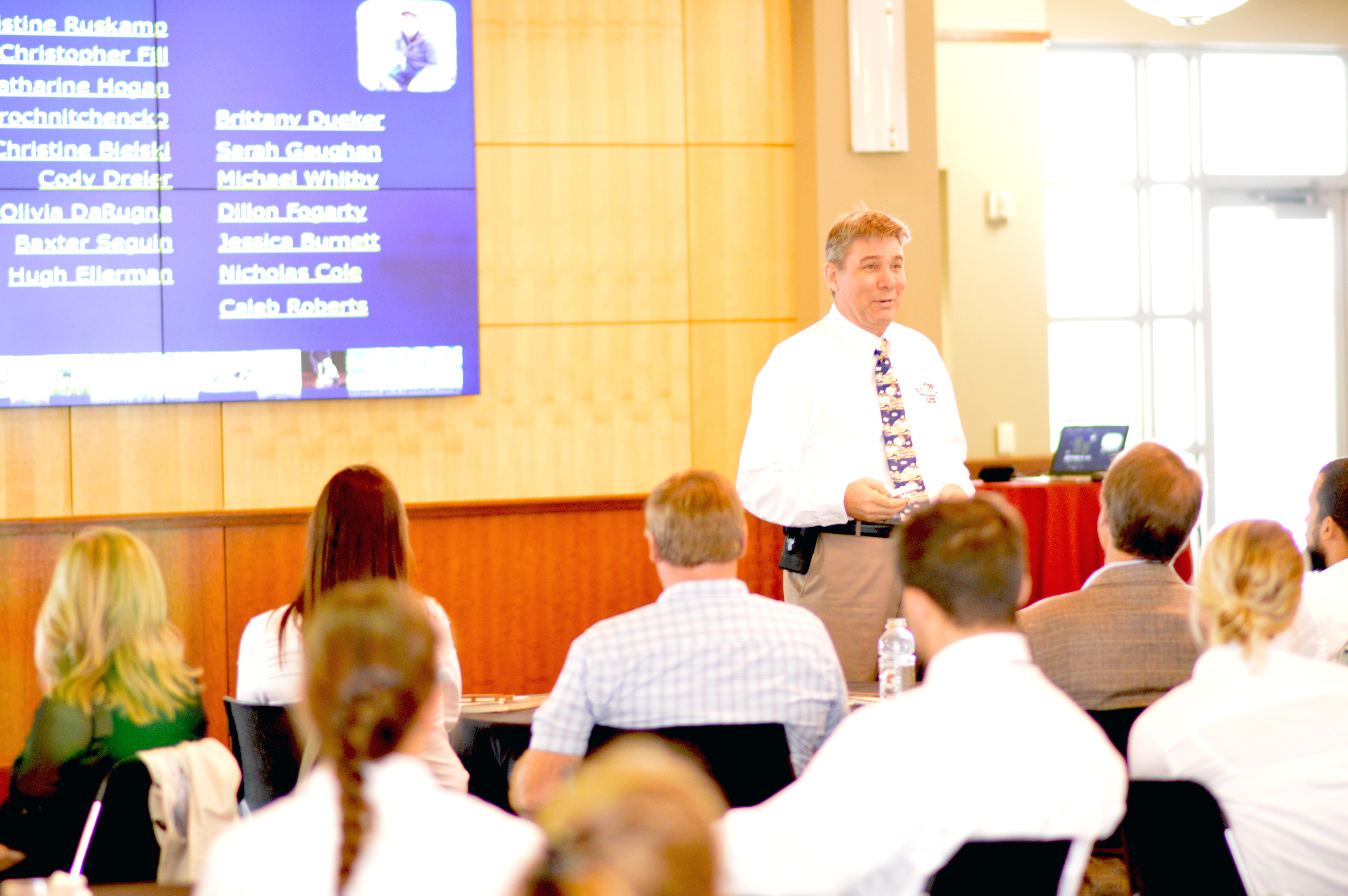
The leadership of the Nebraska Cooperative Fish and Wildlife Research Unit at the University of Nebraska-Lincoln has changed hands. After 14 years at the helm, Craig Allen has stepped down, and Kevin Pope has stepped up to become the unit’s newest leader.
The two have worked together since 2005 when Allen hired Pope as a fisheries research scientist for the unit that was just one-year-old at the time.
“I started when we had one (graduate) student each, and now there are 25,” Pope said with a grin. Over that time, the original staff of two grew to eight, with nearly 100 temporary workers hired during summer months, and for many years, Pope served as one of two assistant unit leaders.
The unit, embedded within the School of Natural Resources, is one of 40 based in 38 states, and is a cooperative agreement between the university, the U.S. Geological Survey; the Nebraska Game and Parks Commission; the U.S. Fish and Wildlife Service, and the Wildlife Management Institute.
“We are not aware of any other unit leader stepping down (anywhere in the country), so it is really unique for that to happen,” Pope said. “Usually, they retire or shift up.”
That was part of the reason Pope felt compelled to move into Allen’s position. The two have invested their careers thus far to building a program that can provide research-based solutions to state and federal fish and wildlife management problems.
“Looking back, it’s been very much a honeymoon phase for the unit,” Pope said. “A lot of folks with state agencies and with other organizations worked hard to get Congress to authorize us as a unit.” The effort took 20 years, and the unit benefitted handsomely from that effort.
But now Pope sees a transition on the horizon as those committed individuals begin to retire and people who haven’t been there since the beginning start to take over leadership positions in partnering agencies.
“We’ll need to think differently about how we fit into the landscape,” he said, “and it will be more important to show the benefit our research has on the state.”
In the unit’s past, research has spanned topics from invasive trees to fish; otters to anglers; bats to quail to grasslands. Only some of it has had a regional focus.
“Lots of issues go beyond the state boundary,” Pope said. “But there is a lot of pressure to do research just in the state.”
Pope is confident he’ll be able to juggle the competing research needs of the state and region, while also meeting the expectations of the university and USGS. The biggest challenge he sees in the next five to 10 years is personnel changes as employees move on or up and as graduate students swap out.
“It’s going to be busy,” he said.
But he foresees a few easy jobs will fall under his new title, too. Cheerleading for one.
“I am part of a great team from SNR and beyond,” he said. And when the people are great, the rest just seems to falls into place.
― Shawna Richter-Ryerson, School of Natural Resources
More details at: https://go.unl.edu/900d